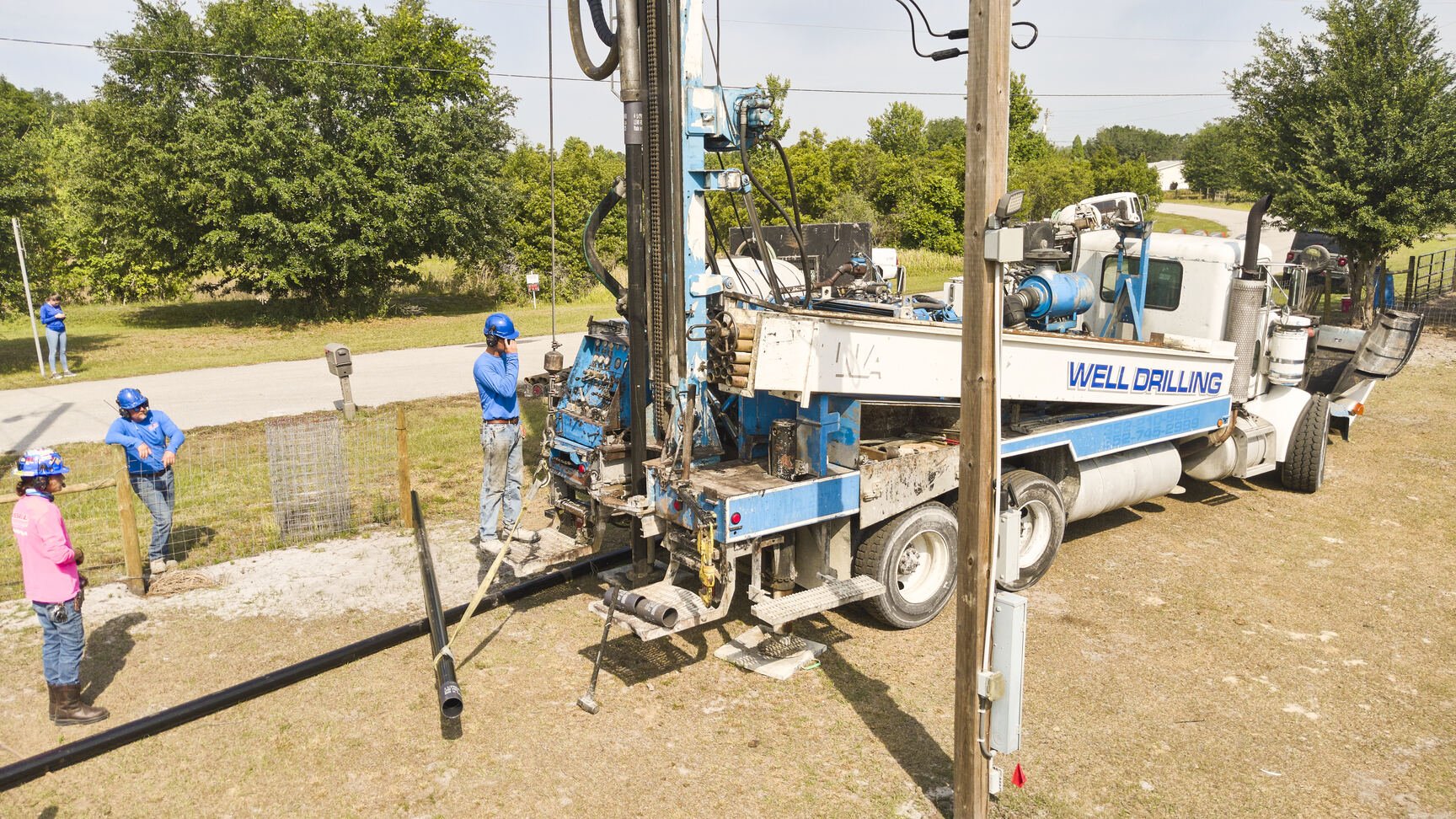
New Well Drills in Polk County and Surrounding Cities
Proudly serving the entire Polk County area and parts of the surrounding counties, including Auburndale, Winter Haven, Polk City, Lakeland, Lake Alfred, Kathleen, Highland City, Mulberry, Dundee, Haines City, Davenport, Lake Wales, Eagle Lake, Bartow, Frostproof, Babson Park, Fort Meade, Plant City, Lithia, Dover, Clermont, Groveland, Avon Park, Dade City, Kissimmee, and more!
Free Estimates for Well Drilling
Previously, water wells were only used by residents whose homes were in remote areas that the municipal water supply system couldn’t reach. However, things have changed. Today, numerous households nationwide rely on a private well for their water supply needs due to this structure’s benefits.
Whether a home is in a rural or urban area, the municipal water supply can sometimes be unreliable due to contamination, damaged pipes, or water main repairs. Plus, the quality of this water remains a concern, even though the advanced techniques municipalities use to sanitize and decontaminate it.
In contrast, private water wells provide safe drinking water containing no chlorine or fluoride additives. Besides affecting the water’s taste, these additives can cause health issues when ingested regularly. In addition, unlike municipal water, well water contains only natural minerals like magnesium and calcium. Well water is naturally filtered through mineral deposits and often has a cleaner and purer taste.
Installing a private water well can also save property owners money in the long run because they won’t pay for municipal water rates that increase at regular intervals. In addition, a private water well can add to the property’s value.
Even if property owners only need irrigation wells, they can count on Fussell Well Drilling. Our company specializes in a range of well-drilling services for domestic, irrigation, agricultural, industrial, and limited-use public supply. Regardless of the intended purpose, these wells have lower environmental impacts. Their water supply is continuously refreshed and rarely exhausted, even during the worst droughts.
At Fussell Well Drilling, we also drill monitoring wells, which certain entities require to observe their impact on the surrounding groundwater area.
Our Reviews
Deep wells for domestic, irrigation, livestock, or public water supply use
Deep wells are also known as open-hole wells. Many people mistakenly believe that a deep well is determined by its depth. However, a deep well simply means the well casing is seated in a consolidated formation with an open hole drilled from the bottom of the casing to the bottom of the well. Well casing is used to “case off” overburden, such as sand or clay. A typical example of consolidated rock in our area would be limestone.
They offer better protection against potential surface contaminants since their depth extends below the sandy formations. Deep water wells are a cost-effective solution for a sustainable water supply since they are less susceptible to drought and other supply issues. Additionally, water from deep wells tends to last longer and requires less monitoring due to a higher level of protection from bacterial contaminants.
Deep wells have numerous uses. A deep well can provide water for domestic purposes, including drinking, cooking, cleaning, and other household needs. Deep wells are also used for irrigation, livestock, and industrial use, such as geothermal cooling loops. They can also support public water supply systems, delivering drinking water to communities.
Shallow wells for irrigation and domestic use
Shallow wells are also known as sand-point wells because their water is provided by a sand formation. They can be truly shallow, such as 30 or 50 feet deep. However, they can also be hundreds of feet deep in some areas where the water table is deep, and there is nothing but sand for hundreds of feet. In these wells, a screen extends from the bottom of the well casing, and water is pulled through the sand while the screen holds back the sand.
Landowners use shallow wells primarily for irrigation, as they provide a reliable water source for crops and landscaping. Shallow wells usually have lower material and labor costs than deep wells, making them an attractive option for property owners on a budget. However, ground formations are not always conducive for their successful development. Also, the pH of the water tends to be more acidic since it isn’t filtered through alkalizing limestone, making it difficult to treat with a water treatment system. For this reason, we usually don’t recommend a shallow well for domestic use in most areas. With proper maintenance and monitoring, shallow wells can be a valuable asset for properties countrywide.
Wells in delineated areas (EDB)
When it comes to drilling wells in delineated areas, some specific regulations and guidelines must be followed. Since these areas have a high potential for contamination of groundwater sources, protecting the water supply is of utmost importance.
Before drilling a well in a delineated area, Fussell Well Drilling will obtain all necessary permits. In addition, our team of experts will follow strict requirements regarding well location and construction. These measures include ensuring that the well casing is installed to an appropriate depth and that casing materials are correctly installed to prevent contamination.
On top of that, we can assist property owners in filing the reimbursement paperwork. Since constructing wells in delineated areas comes with increased costs, the State of Florida offers the Water Supply Restoration subsidy to help reimburse property owners for additional construction costs associated with a new domestic well within an EDB area. If the new well is eligible for this subsidy, the state will reimburse the difference between what the well cost versus what it would have cost if not EDB not to exceed half the cost of the well, including testing.




